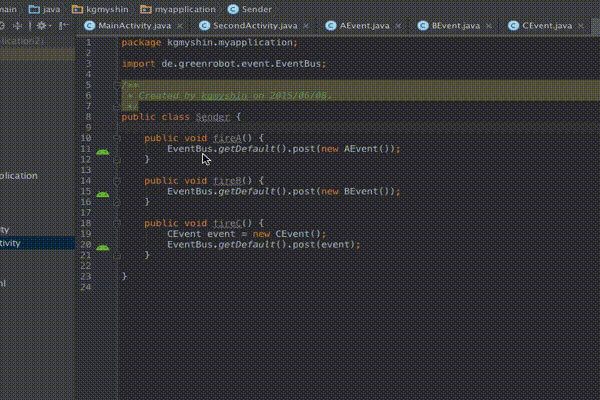
A brief summary of each plugin and its purpose is provided below: They can be used together or separately depending on your needs. Mapbox plugins cover many of our SDKs for Android.
#Android studio plugins how to
The example below shows how to install the Traffic Plugin, but the process is the same for other plugins. Head over to the Maps SDK Getting Started documentation to learn more.
#Android studio plugins for android
With these plugins, you can pick the features that your app needs without losing the ability to customize all bundled into lightweight dependencies.īy using a plugin, you also include the Maps SDK for Android which means that you'll need to set up your project to use the Maps SDK if you haven't already. Use plugins to show a user's location, display traffic or building overlays, or search for places. Mapbox Plugins for Android are a collection of libraries that extend our Maps, Navigation, and Java SDKs for Android to help you integrate powerful mapping features into your applications. Separating features into different plugins also allows for a more aggressive updating timeline.
#Android studio plugins code
Whether you're looking to include traffic on top of your map or show the user location as a layer, plugins offer customizable APIs with a few lines of code to get started. They provide extra features in lightweight dependencies. Mapbox Plugins for Android are built on top of the Maps SDK. For information on using the Mapbox Maps SDK for Android v10 and higher, see the Maps SDK documentation. They receive in the resume event.Mapbox Android plugins are not compatible with the Maps SDK v10 or higher. To process the result with javascript before the application receives it.Ĭonsequently, you should strive to make the result returned by the native codeĪs complete as possible and not rely on any javascript callbacks when launchingīe sure to communicate how the Cordova application should interpret the result

Going directly to the Cordova application your plugin will not have a chance This resume payload will be passed to any callbacks that the javascriptĪpplication has registered for the resume event.

result will be whatever result the plugin passes to the CallbackContext.See PluginResult.java for the String values pluginStatus will be a String describing the status of the PluginResult.pluginServiceName will match the name element from your plugin.xml.Payload of the resume event follows this structure: Resume event that is fired when the application resumes. Instead, this replacement CallbackContext will return the result as part of the Original callback is lost, and will not be fired in the javascript application. It is important to realize that thisĬallbackContext IS NOT the same one that was destroyed with the Activity.

Plugin requested using the CordovaInterface's startActivityForResult() methodĪnd the Cordova Activity was destroyed by the OS while in the background.Īs part of onRestoreStateForActivityResult(), your plugin will be passed a Restored except in the case where an Activity result is obtained that your Necessary to handle that Activity result. Plugin launches an Activity for a result and should only restore the state It is important to note that the above methods should only be used if your Public boolean execute ( String action, JSONArray args, final CallbackContext callbackContext ) throws JSONException


 0 kommentar(er)
0 kommentar(er)
